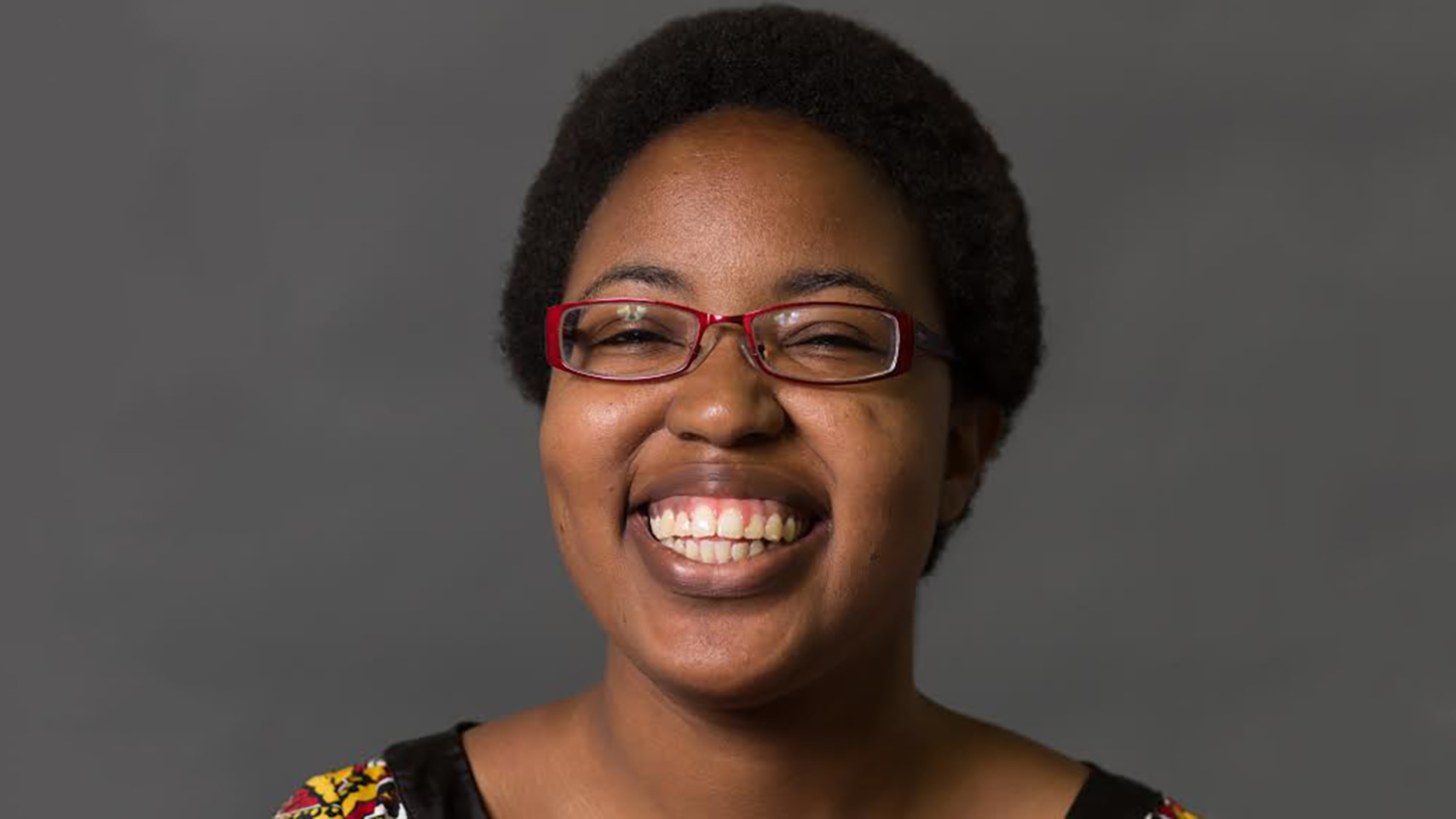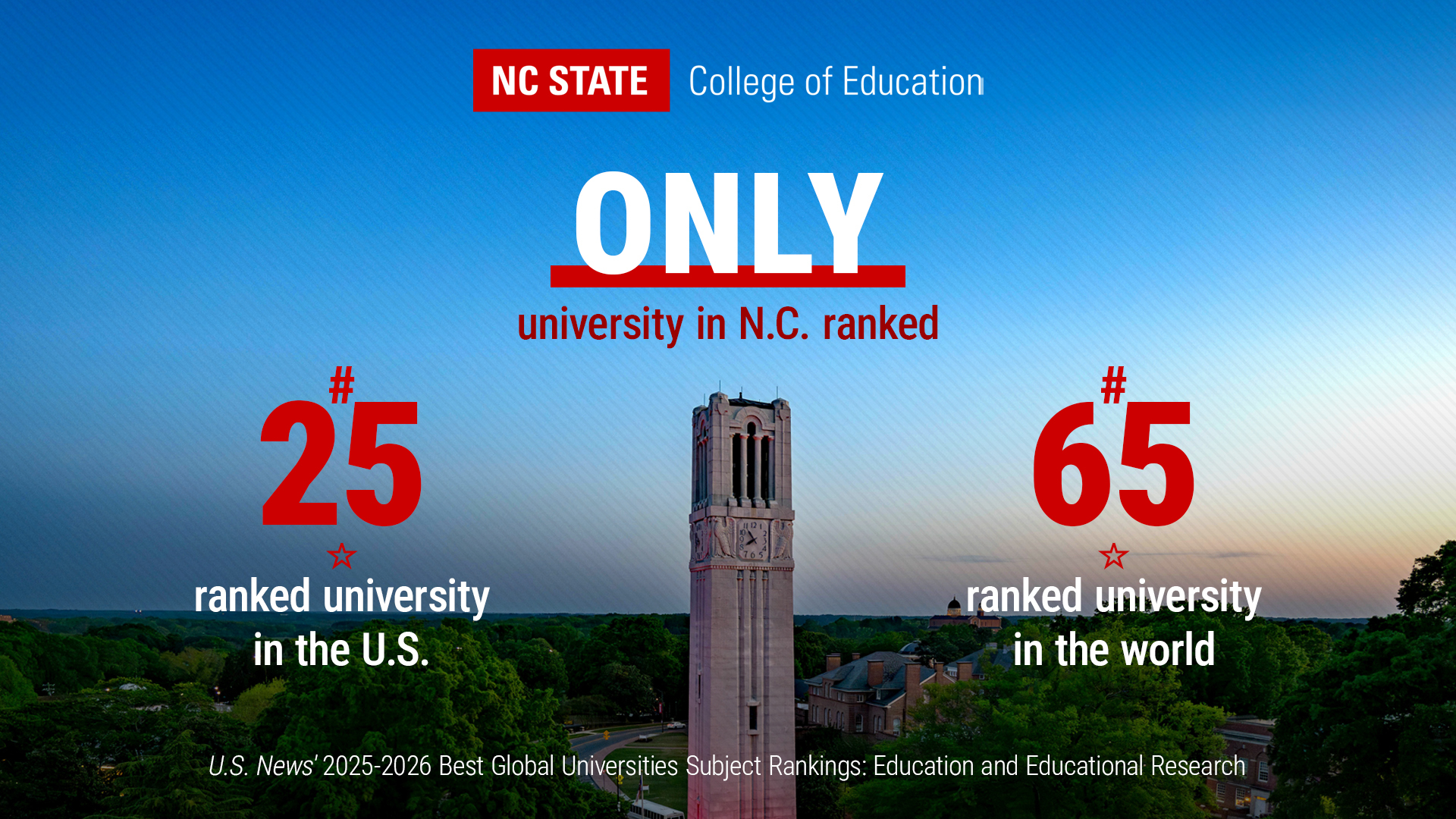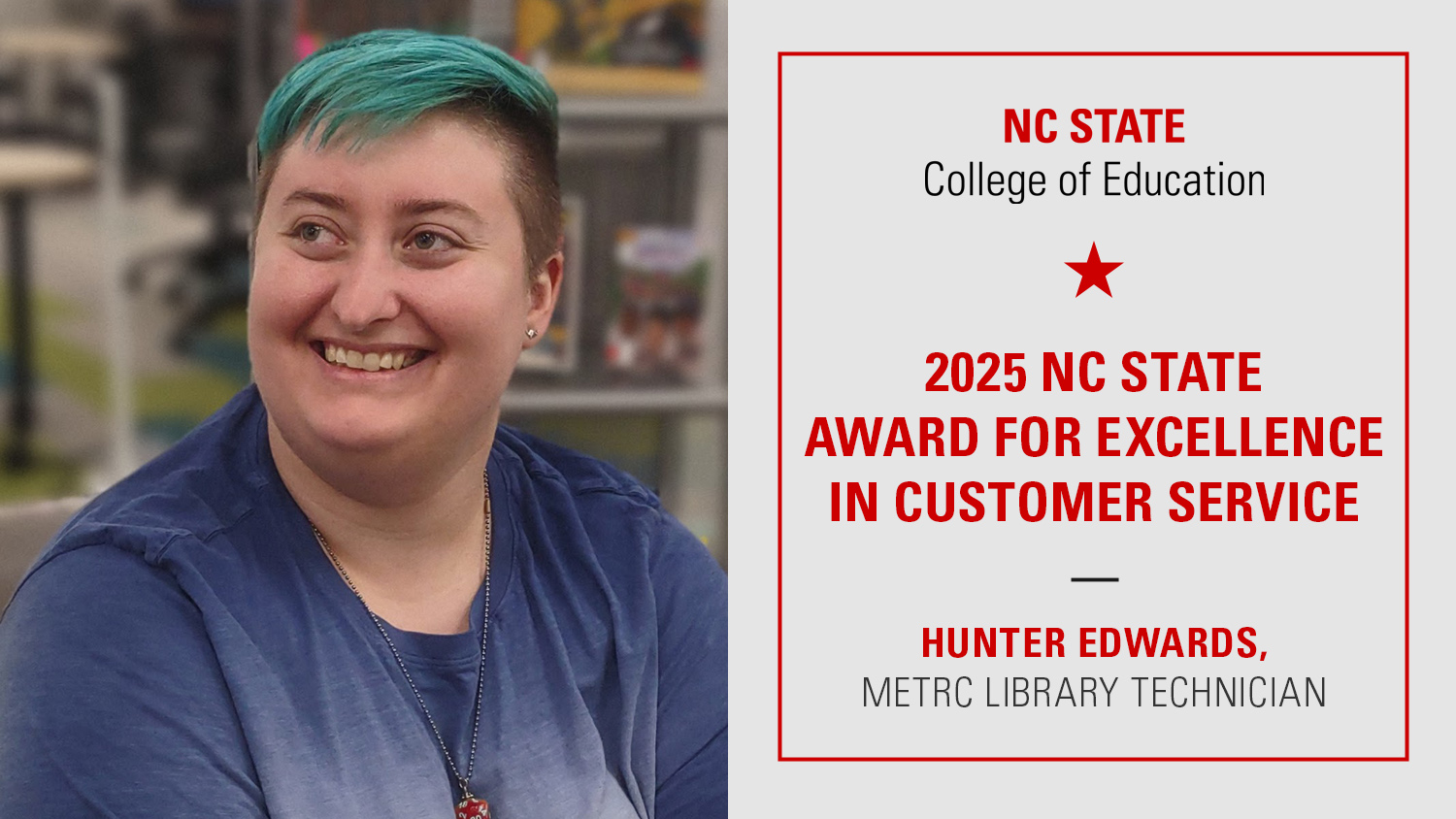Associate Professor Christy Byrd Will Help Develop Tool To Measure STEM Identities of African American Students Through Work on Grant-funded Project

To address the underrepresentation of African American students in STEM disciplines, NC State College of Education Associate Professor Christy Byrd believes it is essential that universities and researchers understand how to support those students in developing an interest in STEM and maintaining that interest through their career selection.
To help advance this understanding, Byrd will serve as a co-principal investigator on a three-year, $349,893 grant in collaboration with NC A&T University entitled “Broadening Participation Research Project: The Development of a Multidimensional STEM Identity Measure to Increase Retention and Success of African American Students at an HBCU.” Byrd will receive $108,565 of the project’s overall funding from the National Science Foundation.
“Being African American doesn’t mean the same thing to every African American person, so there won’t be one best approach to developing STEM identity in all African American students,” Byrd said. “My own research has shown that African American students respond differently to their campus climate depending on their racial identity beliefs, so we expect this to also be true for STEM students when they are thinking about what it means to be in a STEM program and go into a STEM career.”
Existing theories and models of STEM identities, Byrd and her fellow researchers said, are based on Eurocentric frameworks and samples. This new project aims to develop the first quantitative tool to specifically measure the STEM identity of African American students while accounting for their racial identity.
The instrument will conceptualize the multidimensional nature of STEM identity in African American college students attending historically Black colleges and universities, with a focus on social identity and academic identity.
Researchers will also determine whether this new instrument is effective in predicting African American students’ participation in STEM-related activities or careers.
“We hope to improve STEM programs so that they are more equitable and inclusive, and so that every student can be set up for success,” Byrd said. “I also expect that this measure will be adapted and used to study other populations, like younger children and other ethnic-racial groups.”
- Categories:


